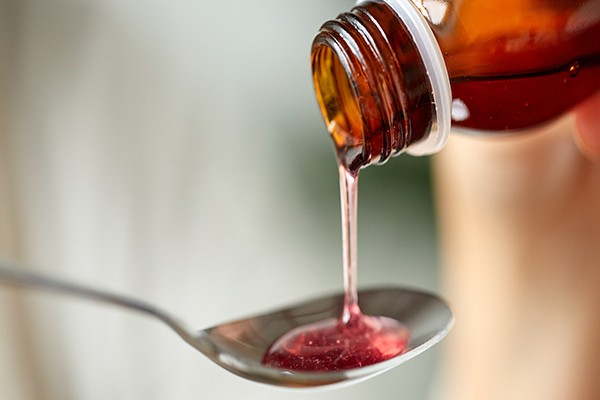Addiction to codeine cough syrup is more common than most people realize. People who have abused codeine by ingesting it as cough syrup repeatedly will in a short amount of time (3 months or more) develop a tolerance for it. Once a person has a tolerance for codeine or any other drug, it will require that they take more and more of the substance for them to experience the same feeling (high) they got when they initially started taking it. This is one of the reasons codeine is addictive. A second reason codeine cough syrup causes addiction when it is not used as prescribed is that codeine is an opiate drug. 
What are Opioid Drugs?
Opiate drugs include heroin, morphine, prescription pain killers like oxycontin, Vicodin, methadone, and Fentanyl. Codeine is formed from opium poppy plants and is classified as an opiate analgesic, a.k.a pain killer. It helps to decrease pain associated with headaches, bone and muscle aches and suppresses cough. People who abuse codeine most commonly were initially prescribed codeine cough syrup for a severe cough or flu. During that time that they were taking codeine for their illness, they realized that the opiate effect from codeine was pleasurable and wanted more. It is not uncommon for many codeine addicts to fake cough and flu symptoms to be prescribed more codeine.
Codeine Addiction is Real
Once a person is addicted to codeine, the same opioid receptors that regularly monitor endorphins and other hormones regulated by the brain to combat pain and allow a person to experience pleasure eventually malfunction. Once these opioid receptors are affected by the intake of codeine, codeine addicts will then develop a physical addiction to codeine. The physical dependence on an opiate drug, like codeine, means that once their bodies sense that there is no more codeine being ingested, they begin to experience extreme withdrawal symptoms. The symptoms codeine addicts experience include cold sweats, body aches, and fever, insomnia, severe cravings, anxiety, and depression. Not unlike other opiate withdrawal symptoms (heroin, Fentanyl, and morphine), codeine requires that a person get professional help to detox as well as codeine drug treatment. The National Center for Biotechnology Information advances science and health discuss that even though codeine is not considered a potent opiate drug like heroin or morphine, it can be as addictive and dangerous.
While codeine is considered a weak opiate, it carries an identified abuse potential. The development of tolerance on regular or excessive use appears within a short time frame. Literature reports increasing trends in the misuse of codeine, including OTC preparations, which appear to incur significant negative epidemiological, social, and economic consequences. Related harms in terms of morbidity and mortality are documented, along with monetary costs associated with indirect effects on healthcare, prevention, and treatment. (NCBI)
Codeine is also considered a narcotic and is a controlled substance which, when taken or abused without a prescription, can mean that a person will face criminal charges if they are caught. The names that codeine is recognized as for when it is sold illegally in the street include Cody, Captain Cody, schoolboy, doors and fours, loads, pancakes and syrup, and zine. Codeine is considered legally and medically as a drug that has a high risk of addiction and dependence. Codeine addiction will also cause hazardous health conditions. It can cause respiratory distress and death when taken in high doses or when combined with other substances, especially alcohol.
Evoke Wellness at Miramar is Here to Help with Your Addiction
If you or your loved one is addicted to codeine cough syrup, the programs we offer target the behaviors and emotions that many codeine addicts experience. Our drug treatment program for codeine addiction utilizes evidence-based forms of therapy proven to help codeine addicts recover from their addiction. The treatment plan for codeine cough syrup addiction begins with a medically supervised detox. The detoxification process for eliminating codeine from the body must be supervised by a staff of medical doctors and addiction specialists. Clients are provided safe medications to help them tolerate withdrawal symptoms, sleep, feel relaxed, and to help alleviate anxiety or depression. Other drugs also minimize vomiting, diarrhea, cold sweats, and pain. Each client is admitted into the codeine detoxification unit; then, once they complete their detox, they cross over into a treatment program specifically for codeine and opiate addiction. We recommend that all clients addicted to codeine and opiate addicts consider being admitted into our intensive inpatient program or, at a minimum, our residential rehab treatment program. Codeine addiction can be overcome. A supportive environment that applies science-based methods for treatment, along with counseling and support, allows for addicts to achieve a successful recovery and remain clean and sober for good.


